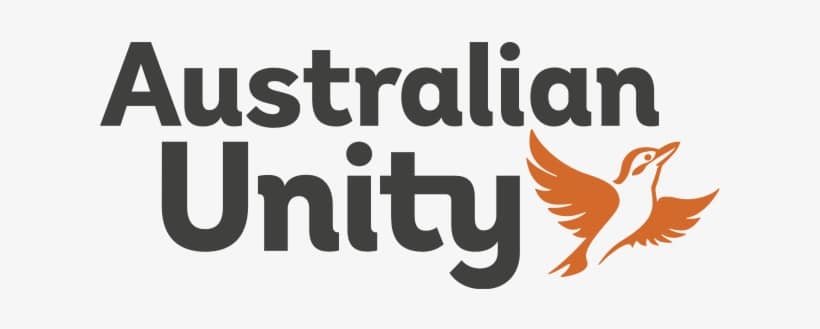Why compare health insurance through Savvy?
Our comparison tool doesn't cost you a cent, allowing anyone to compare offers from trusted insurers around Australia for free.
You can consider the inclusions, premiums, benefits and other key factors easily with us, whether you're at home or on the go.
Considering offers from trusted insurance providers can help give you peace of mind that you're comparing high-quality policies.
Brands you can compare with us



We’ve partnered with Compare Club to bring you a range of health insurance policies to compare side by side.
One of the major areas of health treatment for adults which is not covered by Medicare in Australia is dental treatment. This is where private health insurance comes in, which can offer full or partial cover for the cost of any dental treatment included under your policy. However, it isn’t always easy to determine which health insurance policy will offer you the best cover for dental work.
Savvy can help you navigate the maze of health insurance policies on offer in Australia by providing free quotes in one place to compare. Choose from our partner’s panel of respected Australian insurance companies, after which you can either buy your policy online or get phone assistance to get your health insurance needs sorted out today. Start the process with a free, no-obligation quote today.
What is dental health insurance and how does it work?
Dental health is one area of health treatment which is not generally covered by Medicare, with the exception of basic dental health care for children whose parents receive certain government benefits. For this reason, most dental treatment in Australia is carried out at private dental clinics, with the cost of included treatment either wholly or partially covered by private health insurance.
However, dental health insurance is not usually available as a standalone type of insurance. Instead, it can either be covered by an extras policy for more minor, routine dental work or by a hospital insurance policy in some cases for more major dental surgery performed in a hospital (such as wisdom tooth extraction).
Some health insurers have developed their own network of private dental clinics which can offer extras members dental treatment with a high benefit rate. This means that if you are a member of certain health funds, you may be able to receive dental treatment at these affiliated private clinics with little or no gap to be paid for your treatment. These are commonly known as ‘no-gap’ extras providers. The ‘gap’ describes the difference in cost between the health fund benefit and what the dentist charges for treatment.
You can compare the different types and levels of private health insurance available in Australia through Savvy. Get a range of free quotes from our partner’s panel of insurers instantly online and compare them side-by-side today.
What is usually included and excluded in health insurance for dental treatment?
All dental treatment is classified as either general or major dental work.
- Routine or general dental treatment is covered by extras health insurance policies
- Major dental work can either be covered by an extras policy (if it is delivered outside of a hospital setting) or by a hospital policy (if hospital admission is required)
In addition, there is another classification of dental work called orthodontics, which is a specialist branch of dentistry and involves ensuring the correct alignment of teeth within the jaw bone, particularly as children’s teeth emerge.
General dental – covered by an extras health insurance policy:
- Dental examinations
- Preventative treatments including scale and clean, plaque removal and polishing
- Fluoride treatments
- Fissure sealing
- Basic extractions
- Basic fillings of cavities
- X-rays of the mouth and jawbone
Major dental – also covered by an extras policy (although can be covered by a hospital policy if hospital admission is required)
- Endodontic services – procedures relating to the soft tissue and gums (for example, major root canal work and wisdom teeth removal)
- Periodontics – the treatment of gum disease
- Crowns, bridges, dentures and dental implants (if these are covered)
- Major restorative fillings, including treatments such as inlays, onlays and caps
- Oral dental appliances to treat sleep apnoea and other jaw-related sleep disorders
Orthodontics – treatment usually covered by higher level Extras policies
- Treatment concerned with the correct alignment of teeth
- Includes bands, braces and aligners
- Also includes complex teeth alignment treatments such as plates, palate expanders and invisible fitted aligners
Some extras policies will include orthodontic treatment in the same category as major dental, while other policies include it as a separate treatment category with its own waiting periods and annual limits.
What are some of the exclusions on dental cover?
The exclusions which may apply to dental treatment vary from one insurer to another, but possibly may include:
- Cosmetic procedures without the presence of adverse medical symptoms, illness or injury
- No cover for treatment deemed unreasonable or inappropriate (such as cosmetic tooth filling)
- Treatments within your policy’s waiting period
- Claims made either a year or two years after the treatment has been provided
How do I compare health insurance policies for dental treatment?
Some of the factors to consider when comparing extras policies which include dental benefits are:
Cost
Extras policies vary in cost depending on the benefits they provide. The higher the claimable limits and the more treatments that are covered, the more the policy is likely to cost. If you choose a cheaper, more basic extras policy, you could expect the rebate percentages you can claim and annual limits to be lower. The more you pay for the policy, the more coverage you may receive and the less you might have to pay in out-of-pocket expenses, so look for a policy that offers the coverage you need at the most affordable price when comparing.
Rebate levels
Some cheaper extras policies may offer a 50% to 60% rebate on the cost of dental treatment, whilst more expensive policies may offer a rebate of 75% to 100%. The 100% ‘no-gap’ treatments are often provided by dentists who are aligned to a particular health fund and offer ‘no-gap’ treatment to members of that fund. For example, HCF has an extensive ‘no-gap’ provider network, where customers can receive a 100% rebate on the cost of their dental check-ups (and their first visits to a physio, osteopath or chiropractor too).
Category limits
As mentioned above, dental treatment can be divided into two or three categories. An extras policy will allow a certain limit on how much can be claimed for treatment in each category per financial year. For example, a budget extras policy may allow you to claim up to $500 a year for general dental work, whereas a more expensive policy may allow you to claim up to $2,000.
Waiting periods
When you buy a new extras policy for the first time or upgrade the level of cover you have, there will be a dental treatment waiting period before you’re able to make a claim on your policy. Unlike hospital cover waiting periods, these can vary between insurers, so it’s worth carefully comparing them with different policies. Waiting periods may be:
- 2 months for general dental
- 12 months for major dental
- 12 months or more for orthodontics
The types of health insurance
What factors will affect the cost of my private health insurance?
The type of policy you choose
The cost of your private health insurance will depend on whether you choose a hospital cover policy, an extras policy or a combination policy which offers both types of cover in one bundle. There’s no requirement to have your hospital and extras cover with the same insurer; you can take out policies with two different insurers if you feel this will offer you the best combination of health cover.
The level of cover you opt for
For hospital cover policies, you can choose between four levels of cover: basic, bronze, silver and gold. The higher the level of policy you choose, the more the insurance will cost. For example, a basic hospital cover policy will only offer very limited cover for a few basic clinical categories, whereas a more expensive gold policy will provide cover for all applicable categories. The same applies to extras cover: the higher level of cover you opt for, the more you’ll pay.
The excess on your policy
An excess is an initial amount you may have to contribute as part of your hospital treatment. For hospital cover, you’ll be able to choose an excess you feel comfortable paying if you do need to be admitted to hospital. This can range from zero up to a maximum of $750. There are no excesses which apply to extras cover but do consider the benefit limits on offer. For example, an extras policy which offers to refund 50% of the cost of your dental treatment will be less expensive than one that offers a 75% rebate, but you’ll have to pay more out of pocket when receiving treatment.
The government rebate you’re entitled to
The Australian Government assists most Aussies with the cost of their health insurance through the Private Health Insurance Rebate. This is an amount you can either claim back annually through your tax return or you can ask your insurer to reduce your premiums by your rebate amount, so you’ll pay less for your health cover each month. The rebate is income tested so not all Australians are eligible. The rebate you’re entitled to will increase once you’re over 65 years old, depending on your income
Your location in Australia
There are different regulations which apply in different states of Australia, and these, together with different claiming rates may affect the cost of your extras cover. For example, some states cover the cost of ambulance cover for their residents, while others don’t. Therefore, the cost of your health insurance will vary from state to state.
Frequently asked questions about dental health insurance
What is a lifetime limit for dental treatment?
Some health insurance policies offer a lifetime limit for certain treatments like orthodontics, rather than (or in addition to) an annual limit. This means for the life of the policy, you have a set dollar amount to claim for orthodontic treatment. Once you’ve reached your lifetime limit, you will no longer be able to claim for that sort of treatment on your policy.
Can I plan my dental treatment across two financial years?
Yes – many dentists are accustomed to this request. For example, if you have a $2,000 annual limit for major dental work, but the cost of your implant is going to be $4,000, you may be able to have preparatory work and casts done towards the end of the financial year, and then the implant fitted in the next financial year, spreading the cost over two years, allowing you to claim $2,000 in each year.
What is the Child Dental Benefits Schedule?
The Child Dental Benefits Scheme is a Medicare-funded scheme which provides free or subsidised dental treatment to children up to the age of 17 whose parents receive certain Centrelink payments (such as Family Tax Benefit Part A or B, Parenting Payments and Disability Support payments). Under this scheme, you can claim the full cost of the dental treatment for your children if the dentist bulk bills for the treatment provided.
Can dental treatment in a hospital emergency department be covered?
If you or your child suffers a serious mouth injury caused by an accident, you can receive basic dental treatment through a public hospital emergency department. This can include replacing a tooth that has been knocked out, for example. However, follow-up dental work may need to be carried out in a private dental clinic.
Helpful guides on health insurance
COMPARE HEALTH INSURANCE TODAY
Disclaimer:
Savvy is partnered with Compare Club Australia Pty Ltd (AFS representative number 001279036) of Alternative Media Pty Ltd (AFS License number 486326) to provide readers with a variety of health insurance policies to compare. Savvy earns a commission from Compare Club each time a customer buys a health insurance policy via our website. We don’t arrange for products to be purchased from these brands directly, as all purchases are conducted via Compare Club.
Savvy’s comparison service is provided by Compare Club. Compare Club compares selected products from a panel of trusted insurers and does not compare all products in the market.
Any advice presented above or on other pages is general in nature and doesn’t consider your personal or business objectives, needs or finances. It’s always important to consider whether advice is suitable for you before purchasing an insurance policy.
For any further information on the variety of insurers compared by Compare Club or how their business works, you can read their Financial Services Guide.













